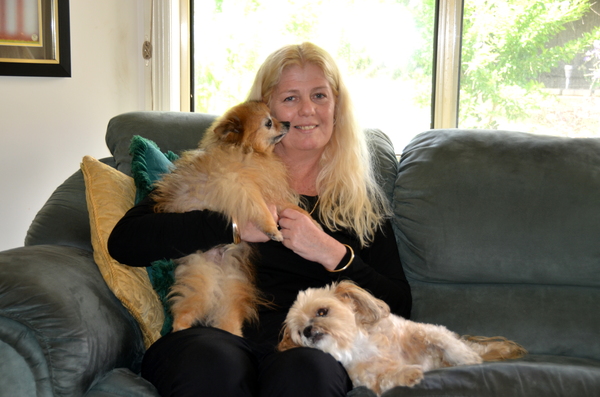
By Bonny Burrows
It was a connection to her beloved team that avid Hawthorn supporter Tracey Morris didn’t want.
Like Hawk’s coach Alistair Clarkson before her, the Pakenham woman was recently diagnosed with Guillain-Barre Syndrome, a rare auto-immune disease characterised by pins and needles.
For Ms Morris, it started in late September shortly after returning from a trip to Bali.
The 51-year-old went to her local GP, only to be told to “come back if it gets worst”.
It did.
Originating in her feet and calves, a week later the pain had gone up to her pelvis.
What followed were lumbar punch tests, blood tests and a nerve test, which “was like a cattle prong”.
“It was not nice, I swore. It was the worst pain I’ve experienced. I had tears,” Ms Morris said.
Eventually, she had a diagnosis – Guillain-Barre Syndrome (GBS).
The symptoms of GBS can range from mild to life-threatening, depending on which nerves are affected, and include muscle weakness, numbness, muscular pain, breathing problems and dizziness.
The condition causes a person’s immune defence system to attack the body’s nerves, and is often caused by a viral or bacterial infection.
Most people recover, but it can take a considerable time.
For Ms Morris she’s been in and out of Frankston Public Hospital and has had a number of rounds of treatment – a five day infusion of horse blood, human blood and plasma.
A former, gym-goer who worked full time, she’s had to learn to walk again and take leave from work at Beaconsfield Home Timber and Hardware.
At times, she had such little strength that she’s struggled to roll over in bed or turn on her electric toothbrush.
“People have different variations of this syndrome,” Ms Morris said.
“At its worst, my legs felt tight and cold like frost bite, but they weren’t cold to touch. I couldn’t shower for three weeks because the water on my skin felt like nails.
“I had to learn to walk again. I’m now on crutches and I can’t drive.”
In hospital, Ms Morris set a goal to be able to get out of bed without a walker.
Now home and with the support of rehabilitation she can walk unassisted and shower and dress herself.
Ms Morris relishes in these small feats as it’s hard to predict when she’ll recover.
“All I want to do is drive a car and go back to work,” she said.
“I’ll get there, we just don’t know when.”
Ms Morris thanked her family and friends, including Star News Group’s own Narelle Williamson and Di Hall for their support during her battle.






